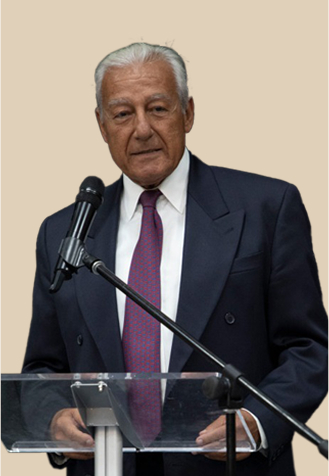Helping Children Cope
Children are seeing frightening images of destruction and death. They are seeing Arabs and Muslims being arrested and blamed for one of the worst tragedies in American history. They are hearing angry calls for military attacks against Arab and Muslim countries. They may be hearing about hate crimes_ against Arab Americans and Muslims. Daily routines have been disrupted. How should parents respond and explain what it happening?
The most important thing, is to acknowledge the crisis, recognize their fears, provide reassurance and let them know you are there to protect them. Children are feeling fearful and powerless. Some may be glued to the TV, others may pretend not to be bothered. Spend time with them. It is to you that they look for security.
Families and groups of families should discuss the situation together. Create a safe atmosphere in the home. It is important to learn what children understand about what is going on. What do they not understand? What is their emotional response? Children of different ages will have different levels of understanding and different emotional reactions. They may feel fear, anger, anxiety, shame, sadness or depression. Take their questions and feelings seriously. Be patient and tolerant if children are upset and act out their feelings. Let them know that they can express their feelings to you and talk about what happened. Let them talk things over with their friends.
Be honest. They may not know what to believe. Verify that what they have heard is true. Correct any misperceptions. Don’t try to hide anything. Acknowledge that many innocent people have died, that the suspects are Arabs and Muslims, that many people are very angry and some of them want to blame Arab Americans and Muslims. Arab Americans and Muslims are angry too. The attacks were a terrible thing and those responsible should be brought to justice.
Parents should calmly acknowledge their own upset and emotional reactions. Everyone has been impacted and has strong feelings about what has happened. Even very young children are very aware of the reactions of adults. Don’t dismiss it, saying, “It’s nothing” or “They’ll get over it.” Small children and children with a history of traumatic experiences may need extra hugs and special reassurance. Honesty and calmness are the keys.
Children may fear being harassed and blamed by other children or by adults. At school they may experience slurs, hostility, isolation, even assaults. Rejection by peers can be devastating for teenagers. Don’t wait for them to come home in tears -they may react very quietly or just appear tired and withdrawn. Encourage them to talk about what happens at school.
Let them know that the police, government leaders, and school officials are there to protect them. President Bush, the Justice Department, the U.S. Congress and numerous local officials have urged Americans not to blame the Arab-American or Muslim communities. Teachers know that students are upset. School counselors are there to advise and help (Parents who are not Arab-American or Muslim should discuss anti-Arab harassment with their own children. Tell them that they should not blame their classmates or their families for the tragedy. If they see harassment by other students or hear hurtful comments, they should notify the school authorities and ask them to put a stop to it).
Arab-American and Muslim children may feel a sense of stigma as a result of these attacks. They may have questions like, “Why do Arabs and Muslims commit such terrible acts?” It is important to let children know that these are the acts of a very few people. Most Arabs and Muslims are very good people who are horrified by the attacks. Every country has bad people who harm others. There were many Arab Americans and Muslims who worked in the World Trade Center and were killed. They were also among the rescuer workers trying to save people. Arab Americans, both Christians and Muslims, have been praying for the victims and donating blood for the survivors.
Why did this happen? Remind them that people in many countries, including the Arab and Muslim counties, have experienced terrible wars and acts of violence. The United States is one of the few countries where such things have not occurred before. We read about such things in the news every day. This time it occurred in the U.S. (A discussion of Middle East politics and U.S. foreign policy might be appropriate for older children, but it will probably not be a good way to deal with their fears and emotions).
As far as possible, keep to normal routines. Make plans about upcoming activities. Focus attention away from the crisis. Get a video to watch together as a family. Watch sitcoms and the cartoon networks. Make a rule to keep dinner table conversation on other topics.
This advice is based on an article in the Montgomery County, Maryland, Gazette, which drew on the suggestions of professional psychiatrists and counselors. Thanks to the Gazette for permission to use the article. It also draws on advice from Dr. Nuha Abudabbeh of the Naim Foundation. The Foundation can provide advice, counseling, and workshops by professionals: You can contact them at 202-462-5715. Many local social service agencies also have such services available.
Recent Posts
Action Alerts

Your support means everything. Your gift protects rights, builds community, and fights hate. Let’s move forward together.
